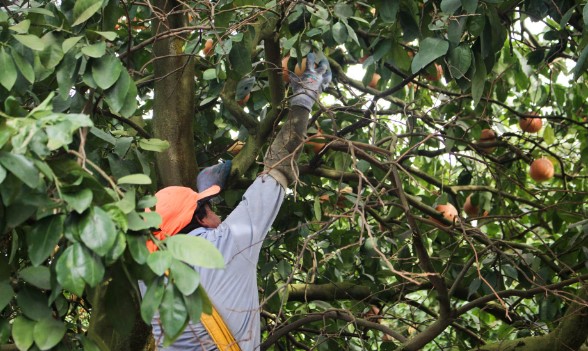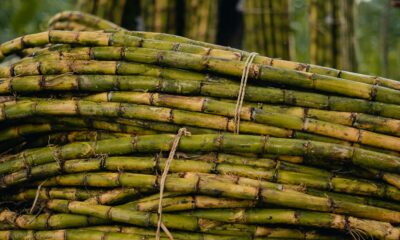Published
6 months agoon
By
zaghrah
In the quiet valleys of Robertson and Citrusdal, where vines stretch into the mist and orange trees glisten in the winter sun, there’s a growing sense of dread. A new 30% tariff on South African agricultural products, announced by the United States, is set to take effect next week and local farmers fear it could be the tipping point for an industry already fighting to survive.
South Africa’s Cap Classique, the country’s answer to champagne, has long delighted global palates. Produced mainly in the Robertson valley just east of Cape Town, the bubbly has enjoyed tariff-free access to the American market thanks to trade agreements like the African Growth and Opportunity Act (AGOA). That’s about to change.
At the Graham Beck estate, known for producing some of the finest Cap Classique in the country, the team raced against the clock to ship their entire US allocation, around 300,000 bottles, before the new duties land.
“We realised we had to buy time,” said general manager Pieter Ferreira. “But the crystal ball is very unclear for 2026.”
While Graham Beck employs 135 workers and has contingency stock in place, the long-term concern remains: how will this impact next season? And what about smaller producers without the resources to export ahead?
The pain isn’t just in the wine cellars. Citrus farmers in Citrusdal, a key agricultural town two hours north of Cape Town, rely heavily on the US market. Between 6% and 8% of all South African citrus is shipped to the States and for farms like Gerrit van der Merwe’s, it makes up nearly a third of the business.
ALG, Van der Merwe’s family-run operation, employs roughly 2,000 people. While he believes his farm can weather the storm by scaling back production, he’s deeply concerned about the ripple effect.
“If we cut off 100 hectares, there’s going to be 200 people looking for a job next year,” he said. “Citrusdal is a small town. Without those jobs, what happens to the shops, the pharmacy, the school?”
He warned of a silent collapse. “There’s no point in just a farmer surviving while a small rural town is dead.”
According to South Africa’s central bank governor, Lesetja Kganyago, these tariffs could cost the country up to 100,000 jobs. In a country where unemployment is already near 33%, that’s not just economic damage, it’s social devastation.
Agriculture, particularly fruit and wine exports, is a lifeline for many rural communities. It’s a sector that absorbs thousands of low-skilled workers, often in areas where few other opportunities exist.
The timing and tone of the US decision has left a bitter taste. Former President Donald Trump, who first pushed for these tariffs, had previously claimed white South African farmers were being persecuted, a controversial narrative that many here reject.
Ferreira, reflecting on Trump’s rhetoric, called out the contradiction. “He says the government doesn’t look after the farmers, then penalises us with a 30% tariff? It’s ridiculous.”
The irony isn’t lost on Van der Merwe either. “We’re not competing with American farmers. Our citrus hits shelves in their off-season. We’re not stealing jobs, we’re providing fresh, healthy fruit when their own trees aren’t bearing.”
With the new tariffs looming, the future remains uncertain. For now, farmers are doing what they’ve always done—adapting. But without a reversal or renegotiation of the trade rules, the fear is real: more pruning, fewer workers, and shrinking rural economies.
Ferreira’s parting words speak volumes. “We’re not asking for charity. We’re asking for fairness. Let’s not let politics trample livelihoods.”
In the vineyards and citrus groves of South Africa, the harvest may still come. But the mood is no longer one of celebration, it’s survival.
{Source: The Citizen}
Follow Joburg ETC on Facebook, Twitter , TikTok and Instagram
For more News in Johannesburg, visit joburgetc.com


D-Day looms for South Africa as US trade lifeline hangs in the balance


Lesufi Joins Call for Local FMD Vaccine as Gauteng Outbreak Tops 260,000 Animals


The Bitter Pill: Can Tongaat Hulett’s Last-Ditch Plea Save SA’s Sugar Belt?


US sounds alarm as South Africa’s Iran naval drills spark diplomatic storm


A Fragile Ascent: World Bank Forecasts Stronger Growth for Sub-Saharan Africa Amidst Daunting Challenges


EFF says South Africa should walk away from AGOA as US extends trade deal















